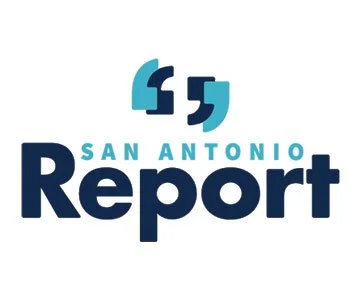Publications and Press Releases
-

Public Interest Registry | Health and Healing Winner
The Health and Healing recognizes an organization or individual dedicated to advancing health and well-being in their community by ensuring access to care, resources, and support.
-

Public Interest Registry | 2025 .ORG Health and Healing Winner
Healthcare is a basic human right, yet millions in underserved regions lack access to specialized medical expertise. Access to Specialist Knowledge (ASK), winner in the Health and Healing category of the 2025 .ORG Impact Awards, is bridging that gap by connecting clinics across Sub-Saharan Africa, South Asia, and South America with board-certified U.S. specialists.
-

Public Interest Registry | 2025 .ORG Impact Awards Finalist Promotional Video
Access to Specialist Knowledge (ASK) is closing the global health equity gap by connecting U.S. based medical specialists with frontline doctors in underserved communities across Africa, South Asia, and South America. Through remote consultations and expert support, ASK empowers local providers to deliver lifesaving care where it's needed most. As a 2025 .ORG Impact Awards Finalist, ASK exemplifies how organizations using the .ORG domain drive transformative change. Their belief is simple but powerful: Where you live shouldn't determine if you live. This story is part of the .ORG Impact Awards, an initiative from Public Interest Registry (PIR) to honor mission-driven organizations making a global difference. PIR also supports the .ORG Community through the .ORG Learning Center and secure, trusted infrastructure built for impact.
-

130. San Antonio Teen Bridges Global Healthcare Gaps Through Access to Specialist Knowledge | Big City, Small Town
At just 14 years old, Ariana Chaudhary visited a rural clinic in Uganda. She witnessed something that would change her life forever: patients suffering due to a lack of access to medical specialists. Instead of walking away, she decided to act. Now 17 and a student at Health Careers High School in San Antonio, Ariana is the founder of ASK Access to Specialist Knowledge. This nonprofit organization connects frontline healthcare workers in underserved communities with volunteer medical specialists from around the world. In this episode of bigcitysmalltown, guest host Cory Ames speaks with Ariana about how she built ASK from a single WhatsApp message into a tech-enabled global network that has now facilitated over 35,000 consultations across Sub-Saharan Africa, South Asia, and beyond.
-

San Antonio Report | San Antonio teen finds a way to connect health care workers across the world
At just 14 years old, Ariana Chaudhary got the idea to create a nonprofit that connects health care workers with medical specialists across the world.
-

Texas Monthly | A Trip to Africa Moved a San Antonio Teenager to Help Save Lives Overseas
Ariana Chaudhary's nonprofit connects under-resourced doctors abroad with consultations by American specialists, one email at a time.
-

San Antonio Express News | 'Found my purpose': San Antonio student's nonprofit combats health care scarcity across globe
Ariana Chaudhary has helped solve over 25,000 medical cases (2024) in Sub-Saharan Africa with her nonprofit, Access to Special Knowledge. A $10,000 grant will help her expand her mission.
-

NSHSS | 18 Under 18 Award (2025)
Selected as one of the most influential leaders nationwide who inspire positive change and world betterment; recognized by NSHSS for transformative leadership, innovation, and community-centric goals.
-

NSHSS | $10,000 Be More Fund Recipient (2024)
The NSHSS Be More Grant program provides over $100,000 in funding to NSHSS members aspiring for world betterment. NSHSS co-founder Claes Nobel once said, "I believe that the human race can be fundamentally better than it is, and students like you will be the ones to change the world to make it what it can be. You are the most formidable proponents of change."
-

International journal of Herbal Medicine A systematic review of herbal medicine use and outcomes in the democratic republic of Congo
First-author publication on the effect of herbal medicine and usage patterns in the DRC. Vol. 13, Issue 3, Part A (2025)
-

Aging Cell | Repeated Withdrawal of a GLPR Agonist Induces Hyperleptinemia and Deteriorates Metabolic Health in Obese Aging UM-HET3 Mice
GLP-1-based therapy is highly effective in combating aging-associated metabolic diseases. However, the metabolic effects of frequent withdrawal from this therapy in aged, obese mice have not been previously studied. In this study, aged obese UM-HET3 mice were assigned to three groups: Group 1 received no liraglutide treatment (Lira OFF); Group 2 underwent 3 cycles of treatment followed by withdrawal (Lira ON/OFF); and Group 3 remained on continuous treatment (Lira ON). As expected, mice in Group 3 showed reduced body weight and food intake, along with improved metabolic health. In contrast, mice in Group 2 developed hyperleptinemia and visceral fat expansion, leading to impaired metabolic health. Importantly, although these mice regained their fat mass after each treatment cycle, they failed to restore lean mass, an unfavorable shift in body composition that may increase vulnerability to aging-related sarcopenia. These findings suggest that continuous GLP-1-based therapy is necessary to sustain metabolic benefits, while intermittent use may promote age-associated sarcopenia and metabolic decline.
-

The Effects of Pulsating Electromagnetic Fields on Cuprizone and Ethanol-Treated Dugesia Tigrina
Multiple sclerosis (MS) is an incurable, autoimmune disease of the central nervous system, affecting over 2.3 million patients globally, manifested by fatigue, spasticity, vision problems, tremor, and disability. Research suggests correlation of MS to the variations in the earth’s magnetic field, hence cuprizone exposed planarians were treated with low dose pulsating electromagnetic field (PEMF) in attempts to reverse neurological damage, thereby providing a potential treatment option for MS. Planaria were selected due to the structural similarity of their nervous system to the human nervous system, and cuprizone, a copper-chelating agent, was used since it induces toxic demyelination, mimicking the effects of multiple sclerosis. By recording the number of head whips before and after treatment and comparing them with the non-treatment arm, the researcher found that PEMF was significantly able to reverse cuprizone-induced-damage in the planarians after 3 days of treatment, indicating that it may be an effective treatment option for MS. There was a significant effect of PEMF in the ethanol control arm, showing that PEMF could be investigated further as a treatment of alcohol induced neurotoxicity.
-

Public Interest Registry Announces 2025 .ORG Impact Awards Finalists, Artist & Actor Common to Host
35 innovative, mission-driven organizations and changemakers selected from nearly 3,000 applicants across more than 120 countries. Access to Specialist Knowledge connects healthcare workers in underserved regions of the globe to U.S. board-certified medical specialists, offering pro bono support that empowers local providers and promotes equitable access to healthcare.
-

Public Interest Registry | Top 5 in Health and Healing
The .ORG Impact Awards honor remarkable achievements by individuals and organizations making the world a better place. These seven categories celebrate the passion, innovation, and impact of the global .ORG community.
